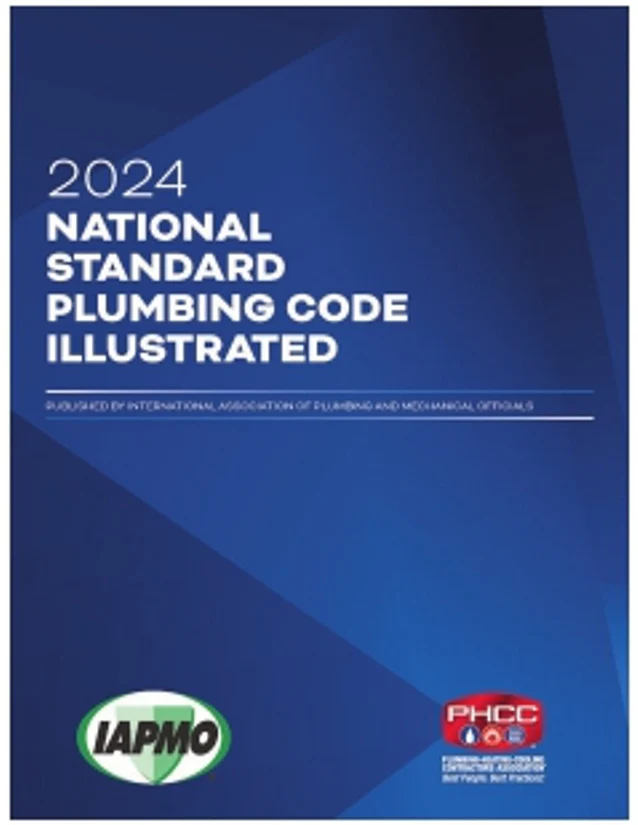Code News: Negotiations Halted In Single Code Venture, Time Running Out
IAPMO says ‘hybrid’ approach was keystone of joint venture
Misconceptions about deal must be cleared up

On Sept. 5, the International Code Council effectively terminated negotiations to develop a single U.S. plumbing and mechanical code in conjunction with the International Association of Plumbing and Mechanical Officials, even though representatives from both parties were in agreement on key matters, and a successful conclusion seemed only weeks away.
In its September issue, PM reported on ICC's July 15 town hall meeting in Denver, where over 100 members and industry professionals hammered out details to decide on particulars of an agreement made in the spring between representatives of both ICC and IAPMO. These details included plumbing and mechanical code ownership, code change process and plans for the 2009 venture code.
IAPMO sent representatives to Denver, and even though roughly half of the ICC members present voiced concerns for the agreement, “we felt it was not a groundswell of opposition, and we left that meeting confident that the deal would move forward,” IAPMO's Executive Director Russ Chaney told PM.
But based on ICC members' input and reactions to the spring agreement, the town hall meeting had a major impact on the decision of ICC executives to end negotiations.
“Ultimately our members and stakeholders made it clear that they were unwilling to deviate from the ICC governmental consensus process, in which public officials - who have no economic interest in the outcome - determine the content of the code,” ICC Board President Henry Green said in a prepared statement. “Commitment to ICC's process runs deep among our members and stakeholders.”
Chaney stated that he was “shocked.”
“At this point I'm almost at a loss for words,” Chaney wrote in reply to the announcement. The ICC's Sept. 5 memo to end discussions discarded to-date agreements, and laid out “a series of nonnegotiable, major ultimatums that IAPMO must meet for talks to resume,” IAPMO's statement declared.
“If IAPMO gave in, then ICC would have been given everything it wanted. And IAPMO is not in a position or willing to agree to that,” Chaney told PM.
The true focus of the venture, Chaney said, was for each organization to retain its identity while promoting a single code. The agreement as of late August, according to IAPMO, was a compromise in which “both parties had a fair deal.” Giving up further concessions could “merge IAPMO into ICC,” he said, or might mean the demise of IAPMO entirely.
Very little further had transpired between the two organizations in the two weeks between the announcement to halt negotiations and press time.
Formal discussions to explore the joint development of new plumbing and mechanical codes began roughly 15 months ago in August 2005. It was initiated by then ICC President Frank Hodge and IAPMO President Chris Salazar. A memorandum of understanding was signed by both parties in September 2005, and meetings were held in November 2005 and February 2006. In May, both groups announced they were in agreement on certain key elements, and many in the industry were looking to a date some time in October to conclude negotiations and move forward with the 2009 venture code.
However, the July ICC member meeting and subsequent statement has severely tightened the timeline for negotiations to continue.
The major concern of ICC members surrounds the code consensus process. IAPMO subscribes to an ANSI-style consensus process, which takes into account industry, as well as governmental and consumer representatives, and reserves the decision on code content to a representative committee. ICC subscribes to a governmental code process, in which the inspectors have the final say.
IAPMO firmly rejects the published claims by those in protest of the deal, which include statements that IAPMO's code process gives power to “special interest groups,” the organization said, and hoped the large amount of myth and misinformation about the agreement, and IAPMO as well, would be properly addressed at ICC's annual convention, which took place mid-September in Orlando.
“A 'hybrid' approach to code development was a feature of the joint venture, combining the best features of each organization's method,” IAPMO said. And in the spirit of the venture, IAPMO will notify ANSI of its plan to change its own process to incorporate some features of this hybrid method for its 2009 edition, regardless of whether talks resume or not.
As of press time, IAPMO hoped the Orlando annual convention eliminated any discomfort of ICC members, and that there would be a reversal of opinion in opposition to the deal so they can get back to the table.
“IAPMO spends nearly $5 million a year competing against ICC,” Chaney said. That amount includes IAPMO staff, regional reps, lobbying programs and attorneys, all in promotion of its code. Chaney bets the amount of money and efforts spent is similar on ICC's side. “That $10 million could instead be used for education and training, and toward the promotion of a single U.S. code. ”
ICC's Rick Weiland, former COO and newly appointed CEO, stated that the board is simply following his member's wishes. “While both sides wanted this to work, ICC is a member-focused organization. The feedback ... made it clear that the joint venture as currently proposed would not be sustainable without further modification.”
PM will continue to cover the negotiations, and will post any breaking news to www.PMmag.com.
Links
Looking for a reprint of this article?
From high-res PDFs to custom plaques, order your copy today!





